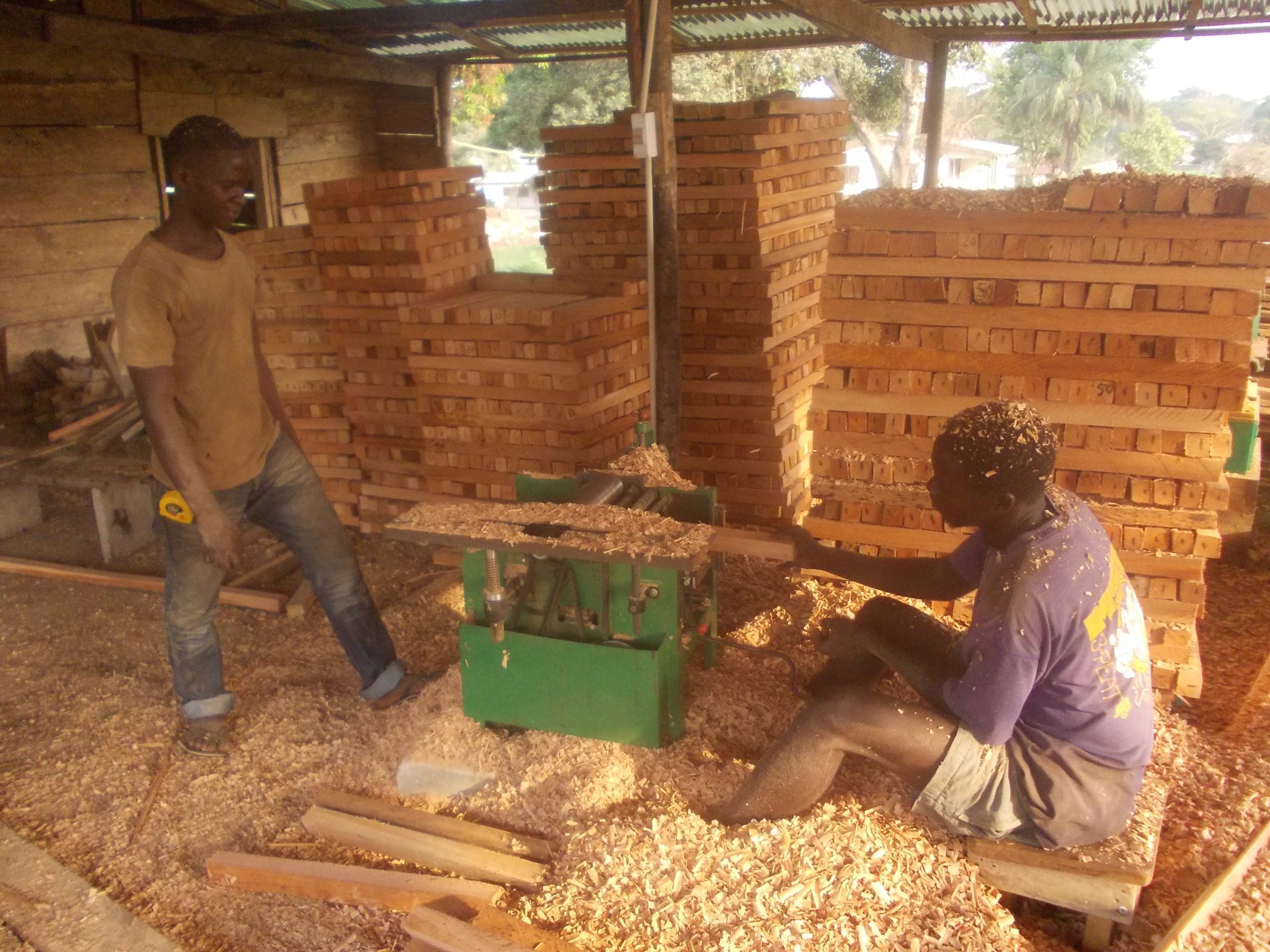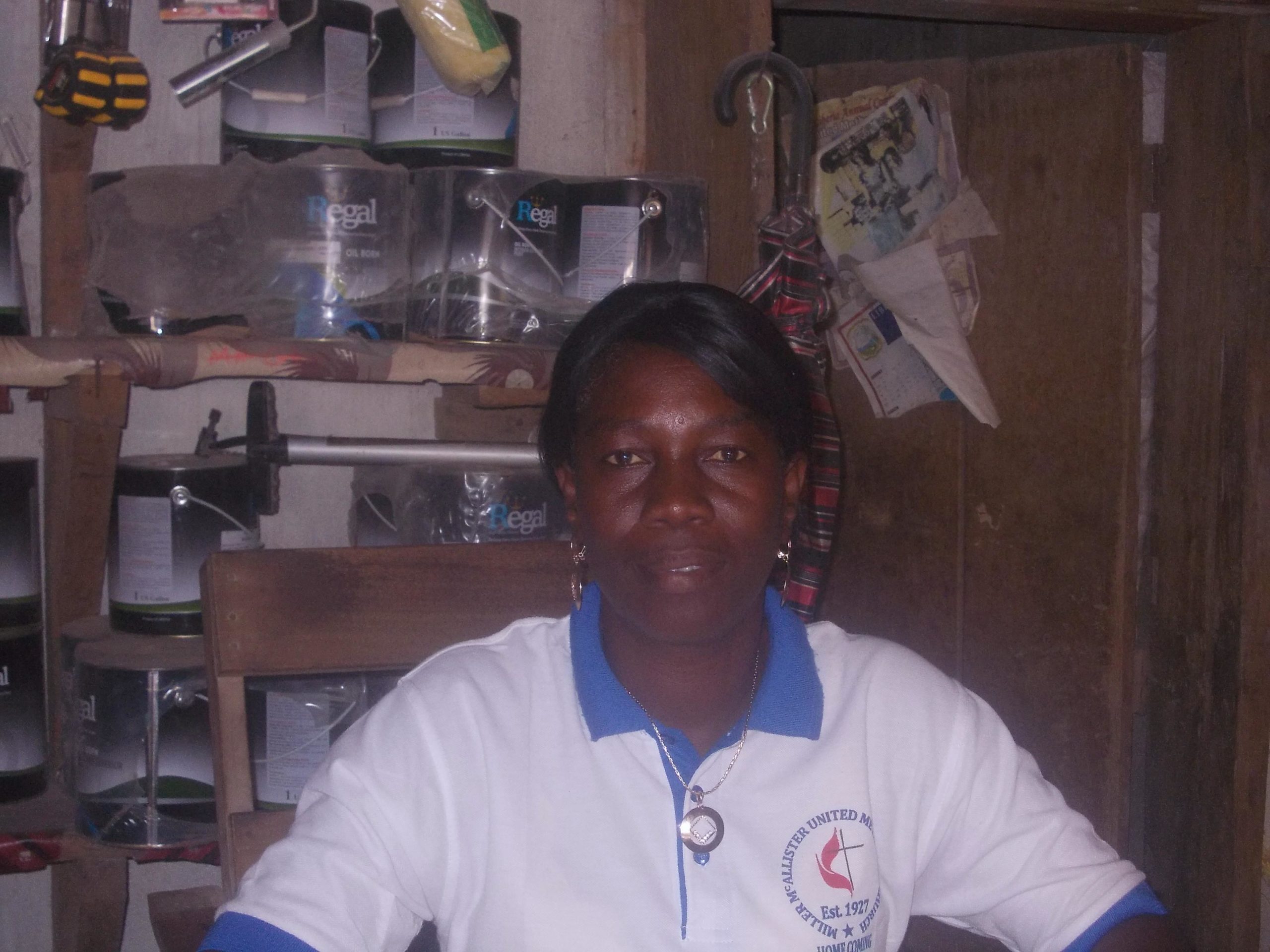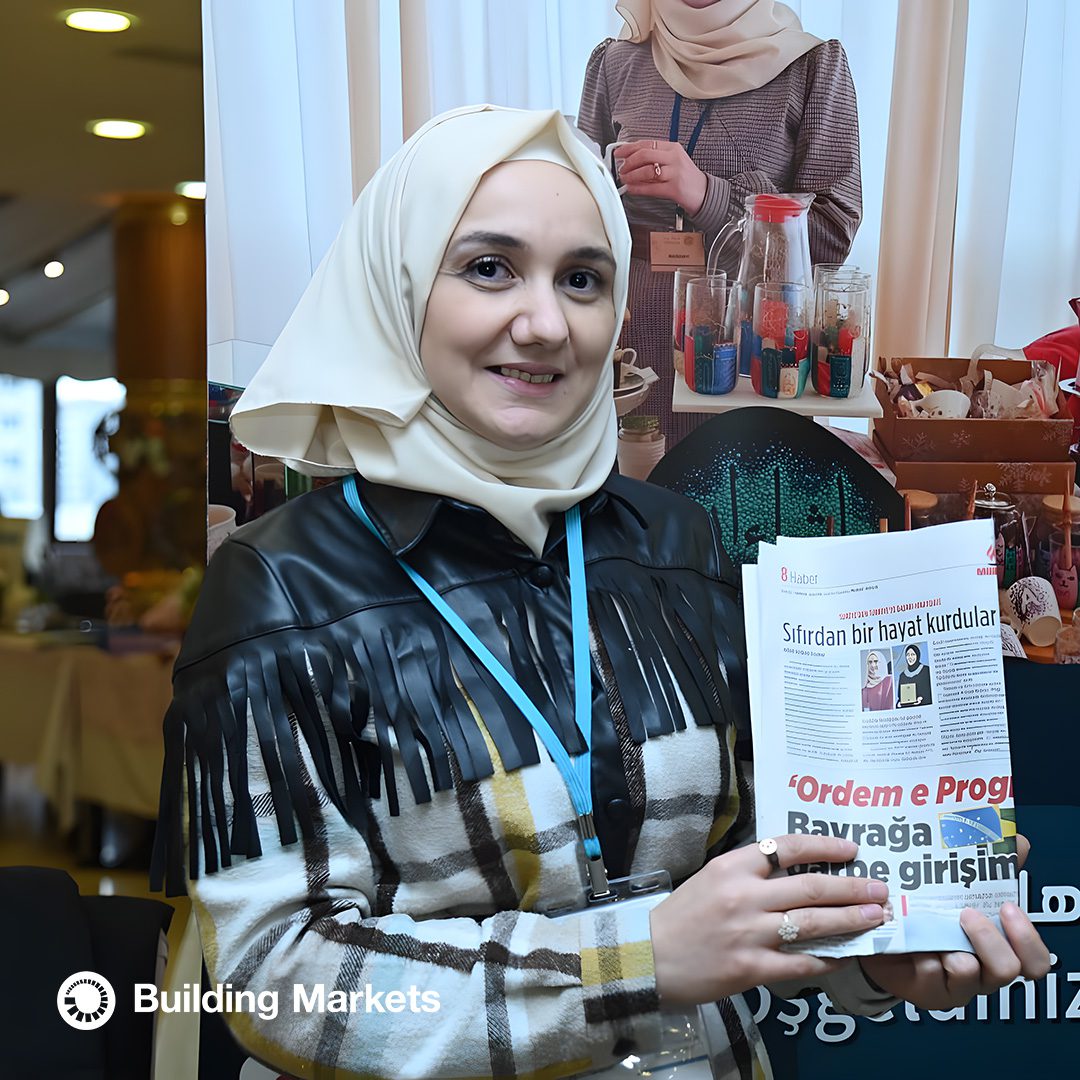Lebbie S. Fallah (pictured at right) started his business as a partnership called Kingdom Business Inc. in 2007, initially selling rice and cement. One year later Fallah and his business partner agreed to move from a partnership to a corporation and branch into general construction. Expanding into a new sector without contacts was a challenge for the business at first. Plus, the business lacked the expertise to adequately prepare bid documents.
All of this changed once Fallah registered the business with Building Markets. The business’s owners began receiving tender notifications via SMS and attending trainings, including general procurement and financial management. While these trainings taught Fallah how to successfully bid on tenders, it did not address the challenge of pre-financing contracts. Many buyers pay suppliers for the work only after it is completed, forcing suppliers to pay for the building materials they need to do the work. This is challenging for many small Liberian businesses that do not have high operating cash flows. Attending Building Markets’ joint ventures training provided Kingdom Business with a solution to this problem.
Building Markets designed a joint ventures training course based on input from many large buyers, including concessions, who recognized that many Liberian businesses are too small to take advantage of large contracts. When suppliers partner successfully together, they are able to bid on larger contracts and capitalize on the opportunities within the marketplace.
Through Building Markets’ tender distribution service and the skills learned in general procurement training, Kingdom Business won four contracts: three from the national government worth $250,280 and one from the German NGO Welthungerhilfe worth $142,432. In order to pre-finance these contracts, Fallah applied lessons from the joint ventures training to attract a local partner to fund the project. Fallah shared their award letters to prove to the partner that the partnership could be a success. The partner agreed; it was a win for both businesses.
“Our successes came as the result of the skills learned [from training] and by applying those skills to bid for tender notices received,” Fallah said. He said some advice given during the training, he could not forget, such as “identify your capacity before you venture for a tender” and “be prepared for the future.”
To implement the contracts, Kingdom Business hired six full-time employees and 16 temporary contractors. With the profits from the contract, the company anticipates purchasing construction equipment such as a concrete mixture, generator and watering pump machines.
In the future, Kingdom Business is seeking to expand into other sectors, such as logistics and supplies. Fallah said that Building Markets’ financial management training will assist the company by training their employees to successfully expand Kingdom Business, Inc.
More from this author -
Latest News -





![[Press Release] Building Markets Awarded Grant from the Nasdaq Foundation to Empower Women Entrepreneurs in Colombia](https://buildingmarkets.org/wp-content/uploads/2024/03/Nasdaq-Partnership-Announcement-2.jpg)